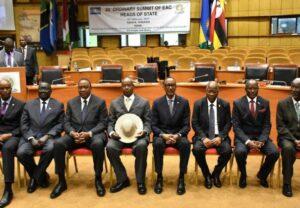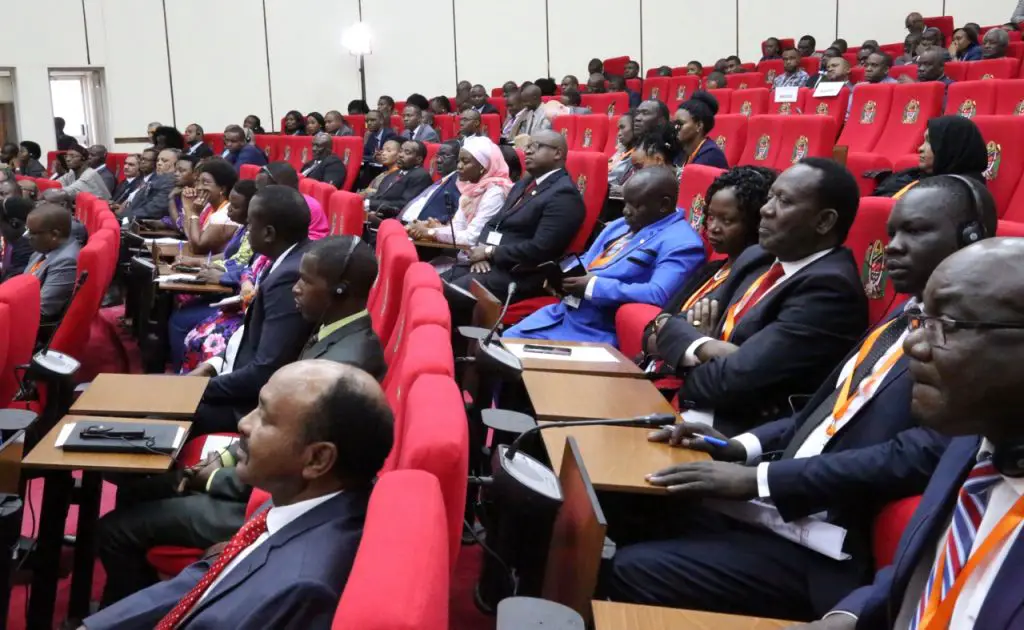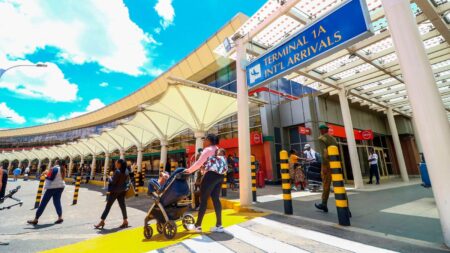For the last 8 years, member states that make up the East African Community have not met their annual commitments to the regional body fully. The closest they came to fully meet these commitments was in the financial year 2011/12, and were at their lowest at 70% for FY2019/20.
This has led to the EAC to push for its organs to reduce their budgets to adjust to this reality which has included reducing the number of activities and missions abroad. These efforts to reduce the expenses by the community were acknowledged last month by the African Development Bank, which ranked the EAC as the most performing regional community in Africa.
For example, documents availed to The Exchange by sources within the community show that the travel expenses which were at USD 17.7 million during FY2013/14 were reduced to USD 12.05 million during FY2017/18.
However, according to sources within the community, the East African Legislative Assembly (EALA) has opposed plans to reduce its budget and introduced measures that have seen their expenses rise considerably.
This has included the number of days they spend at the floor of the assembly, travel allowances, trips abroad, and personal emoluments which includes mortgages and bank loans.
“Previous Assemblies held their sessions for a maximum of 14 days; the current assembly decided, contrary to the directive of the Council of Ministers, to increase this number to 21 days,” noted a source within the EAC who sought for anonymity.
“Thus, each Member of Parliament receives $560 per day (thus $ 11,760 for 21 days) and receives, in addition, a monthly salary of slightly over $ 6,000. “
Read also: East African Community Gender Policy Launched(Opens in a new browser tab)
The regional MPs have also been accused of taking huge loans and mortgages despite the EAC secretariat objecting to guarantee the loans as they go against the EAC financial regulations.
One accounting officer within the Secretariat also confirmed this anomaly. “Unable to rely on their salaries, the MPs can only count on the daily income of $560 which they receive during parliamentary sessions; and we thus better understand why the parliamentary sessions have gone from 14 to 21 days per month.”
This among other issues related to EALA has put the regional parliament on a collision course with the Secretariat. However, the Secretariat has denied the existence of a conflict between the organs and the EAC was only readjusting to irregular contributions from member states.

“There is no conflict between the Secretariat and EALA, and there is no reason for it to exist'” notes an EAC Executive. ” The Secretariat never withholds the funds EALA is supposed to receive. EALA is faced with serious management problems in a context where contributions from EAC Member States are irregular and insufficient,” he adds.
In August, a row erupted among the EALA MPs after reports emerged that they were requesting for the payment of parliamentary travel allowances even after having virtual meetings. The MPs even threatened to shoot down the annual budget unless their dues were met, according to newspaper reports.
This has concerned the Council of Ministers as the dwindling reserve affects the affairs of the regional bloc. For the last 2 years, EALA has had to borrow funds from the EAC General Reserve account and from other EAC institutions. By the end of July 2020, EALA owed nearly USD2 million to the EAC General Reserve Account.
“This unacceptable as the two other organs, the Secretariat and the EAC Court of Justice owed zero,” noted another EAC official.
The borrowing has continued with a recent request for over 1.6 million USD loan from both the Inter-University Council of East Africa (IUCEA) and the Lake Victoria Fisheries Organization to pay the East African legislators a move that has been opposed by Tanzania.
The EALA gave the reason for the borrowing as supposedly to pay money owed to Members of Parliament for virtual meetings (videoconference, Zoom,) held between March and August 2020.
Each Member of Parliament claims USD560 per virtual meeting held. even from his/her home or in some ministry based at 1 or 2 kilometers away from his/her residence.
The EAC Secretary General Amb. Mfumukeko transmitted that request of EALA to the Council of Ministers through a letter dated 20th August, and until now member countries have not reached any consensus on this subject.
The letter by Tanzania’s Permanent Secretary in the Ministry of East African Affairs Ambassador Brig. Gen. Wilbert Augustine Ibuge, notes that his country was not consulted, and it is prudent for the EAC organs to adhere to the principle of controlled spending terming the borrowing “essentially unsustainable”.

Other bodies within the EAC have also questioned the manner under which the EALA was adhering to prudent financial operations. For example, the independent EAC Audit Commission, of which all EAC State Auditors General are members, established in December 2019 that expenditures (mainly by Members of Parliament) of more than USD 6 million had no supporting documents.
Per the Treaty establishing the EAC, the Secretary-General is the Principal Chief Executive Officer of all Organs and Institutions of the Community. Member States send funds to the Secretariat and the latter redistributes them to ALL Organs and Institutions according to the annual budget approved by the Council of Ministers and the Assembly (EALA) for each Organ and Institution.
While the global economy is facing a bleak future as long term effects of Covid-19 start being felt, East Africa Community is at crossroads. The community has called on all its organs to show financial prudence and sound budget utilization. However, for this to happen, insiders feel it is critical to urge EALA MPs to reduce their appetite for personal allowances.











